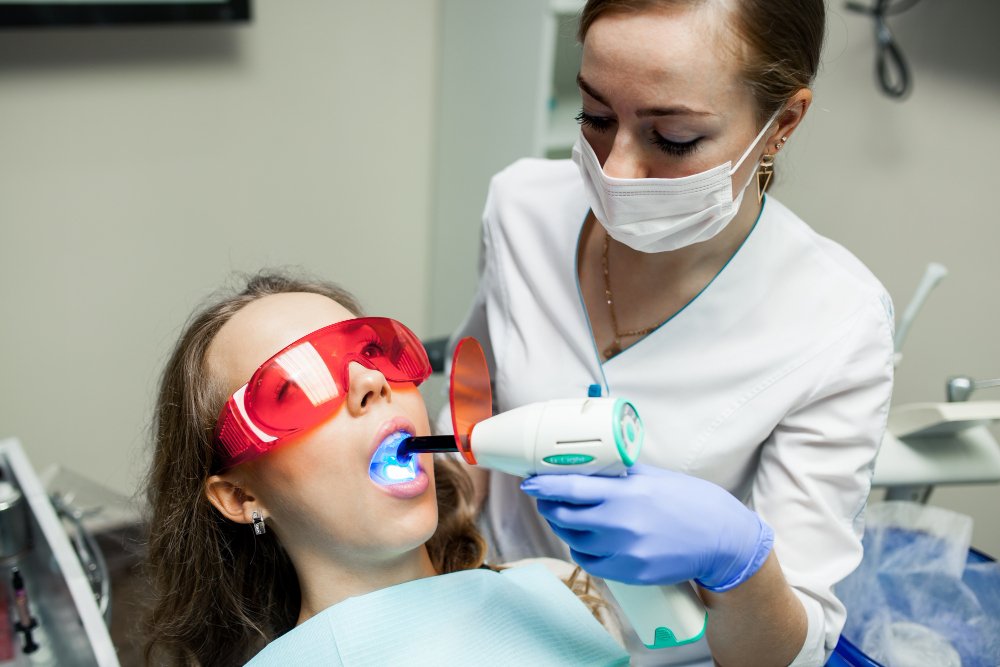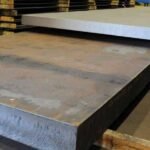Dental crowns are like the hidden stars of dentistry—they protect, repair, and improve your teeth without drawing attention to themselves. A quality dental crown hides your broken tooth from further harm while allowing you to eat, speak, and smile with confidence.
Whether you’re suffering from a cracked tooth, severe decay, or simply want to improve the look of your smile, understanding the different types of dental crowns available can help you make an informed decision about your dental health. Let’s explore the world of dental crown together and find the perfect fit for your unique smile.
What is a Dental Crown?
A dental crown is a tooth-shaped “cap” that is use to cover a tooth that is weak or fractured. Think of it as a protection helmet for your tooth. This custom-made replacement fully covers the exposed part of your tooth above the gum line, returning its shape, size, strength, and look.
Dental crowns are made from various materials, each with unique qualities that make them perfect for different situations. They’re design to blend perfectly with your natural teeth, offering a useful and aesthetically pleasing option for damaged teeth.
When Do You Need a Dental Crown?
You might need a tooth cap if:
- You have a weaker tooth that needs protection from breaking
- You have a crack tooth that needs to be keep together
- You have a badly worn-down or broken tooth that needs repair
- You have a big filling with not much tooth left
- You need to cover a tooth implant
- You’ve had a root canal surgery and need to protect the treated tooth
- You want to improve the look of a damaged or crooked tooth
- You need to fix a dental bridge in place
Understanding when a crown is necessary can help you handle oral problems before they become more serious and costly.
Metal Crowns: Durability Meets Functionality
Metal crowns are the workhorses of the dentistry crown world. Made from metals with high gold, platinum, or base metal content (such as nickel-chromium and cobalt-chromium), these crowns are incredibly strong and durable.
Porcelain-Fused-to-Metal Crowns: The Hybrid Solution
Porcelain-fused-to-metal (PFM) crowns offer a balance between strength and looks. These crowns feature a metal core for strength with a porcelain surface that can be match to your natural tooth color.
All-Ceramic and All-Porcelain Crowns: The Aesthetic Champions
When it comes to making the most natural-looking tooth replacements, all-ceramic and all-porcelain crowns rule supreme. These types of crowns are made from ceramic materials that can be exactly color-matched to your natural teeth.
Zirconia Crowns: Modern Marvels of Dentistry
Zirconia crowns reflect the cutting edge of dental crown technology. Made from zirconium dioxide, a crystal-like form of zirconia, these caps offer the perfect balance of power and style.
E-max Crowns: Precision and Beauty Combined
E-max crowns are manufacture from lithium disilicate glass-ceramic. It is know for its excellent visual qualities and strength. These relatively new adds to the dental crown family offer amazing looks with better stability than standard all-ceramic choices.
Composite Resin Crowns: The Budget-Friendly Option
Composite resin crowns are made from the material use for tooth-colored fillings. These crowns offer a cost-effective option, especially as a temporary measure or for people on a tight budget.
Temporary vs. Permanent Crowns
Temporary crowns serve as placeholders while your permanent crown is being made. Made from plastic or stainless steel, these caps protect your treated tooth for a short time (usually 2-3 weeks). Key differences between temporary and permanent crowns:
- Material quality: Temporary caps are made from less durable materials
- Fit: Temporary crowns don’t have the exact custom fit of permanent ones
- Appearance: Artificial crowns often look less realistic
- Attachment: Temporary caps are seal with easily remove glue
Conclusion
Dental crowns are flexible replacements that can save broken teeth, restore function, and improve your smile. With so many options available—from traditional metal to ultra-modern zirconia and e-max—there’s a perfect crown answer for every situation and price. The key to successful dental crown treatment lies in understanding your options and working with your dentist in le sueur mn to select the material and method that best suits your unique needs.
Related Reads
- Custom Fitness App Development: Build the Fitness App Your Users Actually Want
- Can Liquid Filtration Cartridges Improve Consistency in Food and Beverage Filtration?
- CMA Final Law Lectures – Master Your Exam with Jahangir Tutorials
- What Features Do Top AI Options Trading Apps Include in 2026?
- Best Cornea Treatment in Panipat with Modern Technology at Navjeevan Hospital
- Best Dental Clinic in Al Rigga for Quality Care



